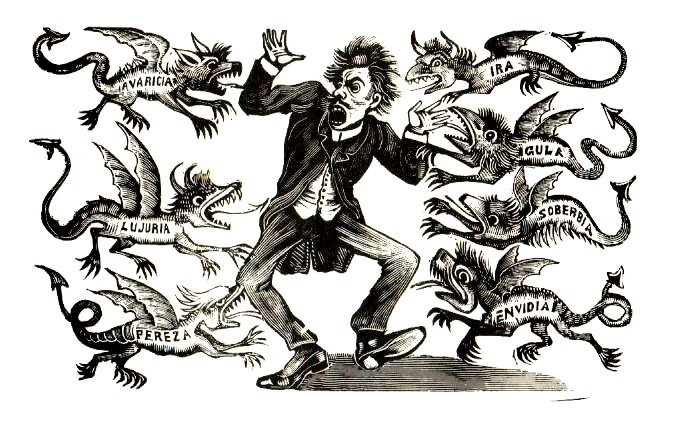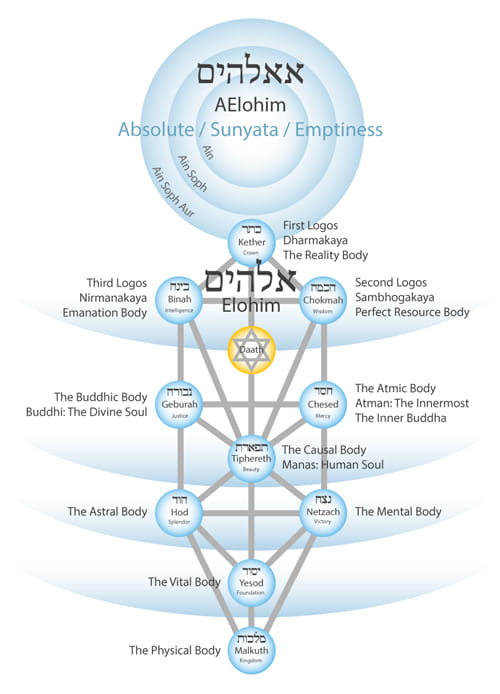Notwithstanding that the human-like machines are the unhappiest beasts that exist in this valley of tears, astoundingly they have the pretentiousness—and even the insolence—of calling themselves “kings and queens of nature.”
“Nosce Te Ipsum” (Know thyself)—this is an ancient golden maxim written on the invincible walls of a temple of the city of Delphi of ancient Greece.

The human-like machines—those wretched intellectual animals who mistakenly classify themselves as humans—have invented thousands of very complicated and intricate machines. Although they do not ignore the fact that they sometimes need long years of study and training to be assisted in any activity by one of their machines, nonetheless they totally forget this fact in regard to their own case, even when indeed they are more complicated machines than all those they have invented.
Among them, there does not exist one who does not have his head filled with totally false ideas about himself. The gravest of all is that they do not want to realize that they really are machines.
The human-like machine does not have freedom of movement: it only functions by means of multiple and varied internal influences and external shocks; yes, all the movements, actions, words, ideas, emotions, feelings, and desires of human-like machines are provoked by external influences and by multiple, strange, and difficult internal causes.
The intellectual animal is a wretched marionette, a loudspeaker with memory and vitality, a living puppet entranced with the silly illusion that it can do, when indeed it truly cannot do anything.
Beloved reader, imagine just for a moment a mechanical, automatic android controlled by a complex mechanism; imagine that such android is alive, falls in love, speaks, walks, desires, wages wars, etc. Likewise, imagine that this android can change owners at any moment. Imagine that each owner is a different person, a person who has his own criteria, his own form of enjoyment, feeling, living, etc.
Consecutively, when any given owner wants to obtain money, he will push certain buttons and then the android will dedicate itself to business; then, half an hour or several hours later, another owner will have a different idea and will make the android dance and laugh; thereafter, a third will make the android fight; next, a fourth will make it fall in love with a sweetheart; right away, a fifth will make it fall in love with another sweetheart; after that a sixth will make the android fight with a neighbor and create a domestic crisis with the police, and thereafter a seventh will make this humanoid move to another neighborhood.
Indeed, this android of our example has done nothing, but mechanically thinks that it did. Sadly, the android is entranced with the illusion that it is doing, when in fact it cannot do anything, because an android does not have an individual being. Undoubtedly, everything has occurred just as when it rains, as when it thunders, as when the sun shines; but the wretched android’s head thinks that it did it, since it is entranced with the silly illusion that it can do many things, when in reality it willfully has done nothing: its respective owners did, and amused themselves with the wretched, mechanical android.
This is how the wretched intellectual animal is, dear reader, just like the mechanical android of our illustrative example. He thinks he acts, when in fact he does nothing. He is a flesh and blood marionette controlled by a legion of energetic, subtle entities that in their conjunction constitute that which is called ego, the pluralized “I.”
The Christian Gospel classifies all those entities as demons, and their true name is legion.

If we state that the “I” is a legion of demons that control the human-like machine, we are not exaggerating. This is how it is.
The human-like machine does not have any individuality; he does not have the Being. Only the true Being has the power to do.
Only the Being can give us true individuality; only the Being can transform us into true human beings.
Those who truly want to cease being simple mechanical androids must eliminate each one of these entities that in their conjunction constitute the “I.” Each one of these egos plays with the human-like machine. Those who truly want to cease being simple mechanical humanoids have to start by admitting and comprehending their own mechanicity.
Those who neither want to comprehend nor accept their own mechanicity, those who do not want to correctly comprehend this fact, can no longer change. They are the unfortunate and wretched ones; it were better for them that “a millstone were hanged about their necks, and they be cast into the sea.” (Matthew 18:6, Mark 9:42, Luke 17:2)
Understand: the intellectual animal is a machine, yet a very special machine, because if it manages to comprehend that it is a machine, and if it is guided well and if the circumstances allow, it can then cease being a machine and transform itself into a human being.
First of all, it is essential to deeply comprehend in all the levels of the mind that we do not have true individuality, that we do not have a permanent center of consciousness, that in a specific moment we are one person and in another moment another person, since everything depends on the entity that is controlling the situation at any given moment.
Be aware that what originates the illusion of unity and integrity within the intellectual animal is partly due to the sensation of having a physical body, partly because of our name and surname, and partly to our memory and mechanical habits implanted within by education or acquired by simple and silly imitation.
The wretched intellectual animals will not be able to cease being machines, they will not be able to change, acquire true individual being, and transform themselves into true human beings, as long as they do not have the courage to eliminate, through in-depth comprehension and in a successive order, each one of those metaphysical entities that in their conjunction constitute that which is named ego, “I,” the self-willed.
Each idea, each passion, each vice, each affection, each hatred, each desire, etc., has its corresponding entity, and the conjunction of all of those entities is the pluralized “I” of revolutionary psychology.
Those metaphysical entities, those selves that in their conjunction constitute the ego, lack any kind of unity. They do not have coordination of any type, since each one of those entities depends totally on circumstances, changes of impressions, events, etc.
The screen of the mind changes colors and scenes at each moment. Everything depends on the entity that at any given moment is controlling the mind. So, these different entities—that in their conjunction constitute the ego, the psychological “I”—pass by the screen of the mind in a continuous procession.
The diverse entities that constitute the pluralized “I” randomly associate or dissociate themselves, they form certain special groups according to their affinities, they quarrel among themselves, they argue, they disregard each other, etc.
Each entity of the legion of the pluralized “I,” each small “I,” believes itself to be the entirety of the self, the total ego. It does not even remotely suspect that it is only a slight part.
The entity within a male that today swears eternal love to a woman is displaced later on by another entity that has nothing to do with such an oath and then the castle of cards crumbles to the floor and the wretched, disheartened woman cries.
The entity that today swears fidelity to a cause is displaced tomorrow by another entity that has nothing to do with such a cause, and then the person withdraws.
The entity that today swears fidelity to Gnosis is displaced tomorrow by another entity that hates Gnosis.
Teachers of schools, colleges, and universities must study this book Fundamentals of Gnostic Education and for humanitarian purposes have the courage to guide their students onto the wonderful path of the revolution of the consciousness.
It is necessary for students to comprehend the necessity of knowing themselves in all of the levels of their mind. It is necessary for them to have a more efficient, intellectual orientation. Yes, it is necessary for us to comprehend what we are, and this must begin from the desks at school.
We do not deny that money is necessary in order to eat, to pay the rent of our home, and to dress ourselves. Likewise, we do not deny that an intellectual preparation, a profession, a way of making money, is essential; but that is not all: that is secondary. The first and fundamental part is to know who we are, what we are, where we came from, where are we going, what is the purpose of our existence.
To continue as automatic androids, as miserable, mortal, human-like machines is indeed lamentable.
It is urgent to cease being mere machines; it is urgent to become true human beings.

A radical change is necessary, and this must begin precisely with the elimination of each one of those entities whose conjunction constitutes the pluralized “I.”
The wretched intellectual animal is not human, but in a latent state within which he has all the possibilities to become a human being.
A mechanical law for those possibilities to develop does not exist, thus the most common thing is for them to be lost. Therefore, only by means of tremendous super-efforts can the possibility of becoming human be developed.
There is much within us that must be eliminated, and there is much that must be acquired. Thus, it is necessary to do an inventory in order to find out what we have in excess and what we need to acquire. It is obvious that the pluralized “I” is an excessive indulgence, thus it is something useless and harmful.
Consequently, it is logical to state that we have to develop certain powers, faculties, and capabilities that the human-like machine attributes to himself and believes he has, but indeed, he truly does not have. Yes, the human-like machine believes that he has a true individuality, an awakened consciousness, conscious willpower, the power to do, yet regrettably he has none of these.
If we want to cease being machines, if we want to awaken the consciousness, if we want to have true conscious willpower, individuality, and the capacity to do, then it is essential to start by knowing ourselves, and thereafter to dissolve the psychological “I.” When the pluralized ego is dissolved, only the true Being remains within us.
Samael Aun Weor
Subscribe to our news, promotions and getting started lessons!



